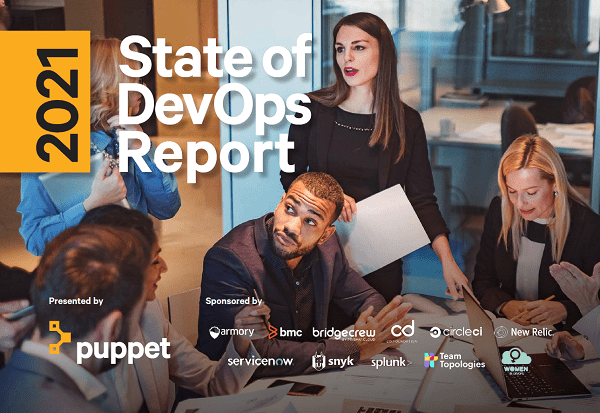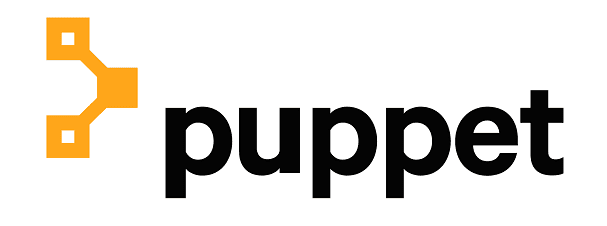REPORTS
2021 State of DevOps Report
July 22, 2021
DevOps is not just automation …
- Highly evolved firms are far more likely to have implemented extensive and pervasive automation, but being good at automation does not make you good at DevOps.
- 90% of respondents with highly evolved DevOps practices report their team has automated most repetitive tasks.
- 97% of respondents with highly evolved DevOps practices agree that automation improves the quality of their work.
- 62% of organizations stuck in mid-evolution report high levels of automation.
… and DevOps is not the cloud
- Almost everyone is using the cloud, but most people are using it poorly. However, highly evolved DevOps teams are using it well.
- Organizations should not expect to become highly evolved just because they use cloud and automation.
- While 2 in 3 respondents report using public cloud, only 1 in 4 are using cloud to its full potential.
- 65% of mid-evolution organizations report using public cloud, yet only 20% of them are using cloud to its full potential.
- While cloud and automation are important, organizations also need to address organizational and team aspects, namely helping teams clarify their mission, primary customers, interfaces, and what makes for healthy interactions with others.
Team identities and clear interaction paradigms matter
- Enterprises are held back from evolving to the highest levels by organizational structure and dynamics.
- Highly evolved firms use a combination of stream-aligned teams and platform teams as the most effective way to manage team cognitive load at scale, and they have a small number of team types whose role and responsibilities are clearly understood by their adjacent teams.
- 91% of highly evolved teams report a clear understanding of their responsibilities to other teams compared to only 46% of low-evolution teams.
- 89% of highly evolved teams report members of their own team have clear roles, plans, and goals for their work, compared to just 46% of low‑evolution teams.
- While more than 3/4 (77%) of highly evolved teams state that teams adjacent to their own team have a clear understanding of their responsibilities as they relate to their own team, only 1/3 of low-evolution teams claim the same.
Cultural blockers are keeping mid-evolution firms stuck in the middle
- Challenges related to culture are most acute among low-evolution organizations, but present persistent blockers among mid-evolution firms.
- 18% of high-evolution respondents report they have no cultural blockers.
- Among mid-level respondents, a mix of cultural blockers present themselves. 21% report their culture discourages risk and 20% state responsibilities are unclear. 18% report fast flow optimization is not a priority, while 17% cite insufficient feedback loops.
Platform teams are key to success at scale
- The existence of a platform team does not inherently unlock higher evolution DevOps; however, great platform teams scale out the benefits of DevOps initiatives.
- Platform team adoption differentiates those toward the higher end of mid-level evolution from those toward the lower end, with 65% of those toward the higher end (“high-mid”) using self-service platforms and only 40% of those toward the lower end (“low-mid”) saying the same.
SHARE:
Price: FREE

About the Provider

Puppet
Puppet helps enterprises modernize and manage their infrastructure with the solutions to automate anywhere, reliably scale, and integrate compliance and security across hybrid infrastructure. More than 40,000 organizations — including more than 80 percent of the Global 5000 — have benefited from Puppet’s open source and commercial solutions to ensure business continuity, optimize costs, boost compliance, and ensure security, all while accelerating the adoption of DevOps practices and delivery of self-service.
TOPICS
DevOps, Information Security, Information Technology





